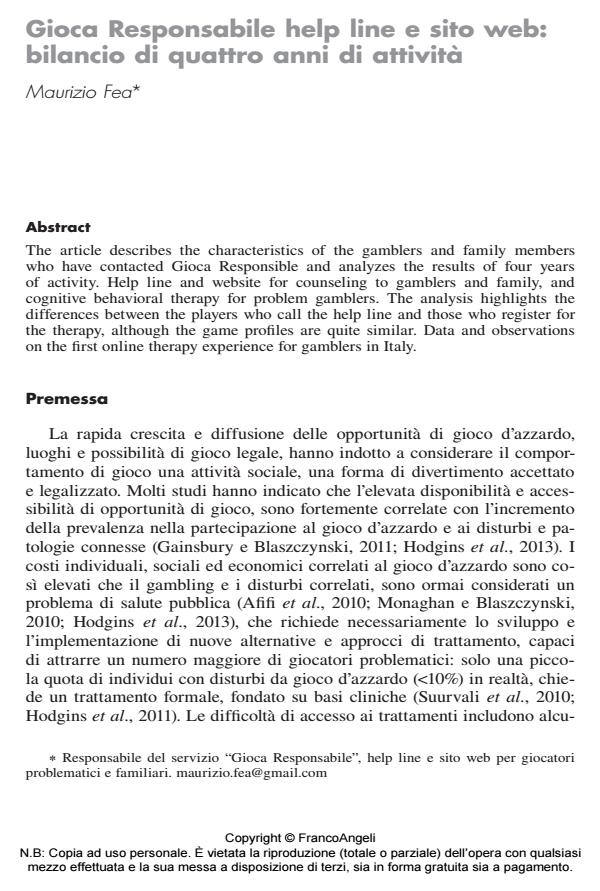Gioca Responsabile help line e sito web: bilancio di quattro anni di attività
Journal title SICUREZZA E SCIENZE SOCIALI
Author/s Maurizio Fea
Publishing Year 2014 Issue 2014/3
Language Italian Pages 10 P. 146-155 File size 105 KB
DOI 10.3280/SISS2014-003011
DOI is like a bar code for intellectual property: to have more infomation
click here
Below, you can see the article first page
If you want to buy this article in PDF format, you can do it, following the instructions to buy download credits

FrancoAngeli is member of Publishers International Linking Association, Inc (PILA), a not-for-profit association which run the CrossRef service enabling links to and from online scholarly content.
The article describes the characteristics of the gamblers and family members who have contacted Gioca Responsible and analyzes the results of four years of activity. Help line and website for counseling to gamblers and family, and cognitive behavioral therapy for problem gamblers. The analysis highlights the differences between the players who call the help line and those who register for the therapy, although the game profiles are quite similar. Data and observations on the first online therapy experience for gamblers in Italy.
Maurizio Fea, Gioca Responsabile help line e sito web: bilancio di quattro anni di attività in "SICUREZZA E SCIENZE SOCIALI" 3/2014, pp 146-155, DOI: 10.3280/SISS2014-003011